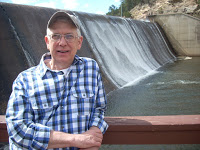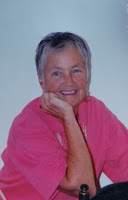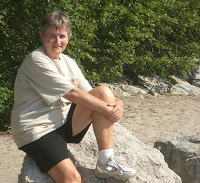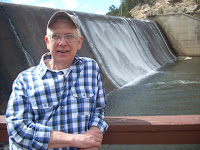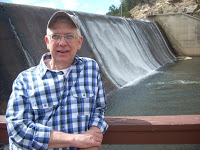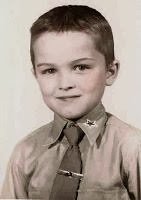This topic started badly. I found myself humming, endlessly, that old Perry Como hit – except I kept thinking his name was Perry Mason which did give me an anxious moment!
Anxious moments, moments we’ve been sharing ……. finally I realized, no! That was magic moments ….. but it hasn’t helped and that old tune is still going round and round in my head.
But back to anxious moments. Of course I’ve had them; plenty of them. You don’t get to my age without them do you? Even if you’re not one of the world’s natural-born worriers, which I am not. You still have anxious moments unless maybe if you’re some kind of psycho- or socio- path. Maybe they escape them. I don’t know. I don’t belong to that group either.
The thing is, I’ve already shared with this group many of my life’s anxious moments, so I will simply touch the surface of a few. And if you occasionally get a feeling of deja vu, no it’s nothing surreal, just me repeating myself – again!
Earliest memories of anxiety all revolve around my mother. Being responsible for her mother’s happiness is a burdensome thing for a little girl. I used to let her win at games, always anxious lest she should spot my subterfuge. I expressed boundless enthusiasm for the latest strange dish she cooked or peculiar garment she knitted, all of which resulted from many anxious moments for my mother. It wasn’t that my mother was just by nature incompetent, though there was a little of that, but simply that she had such limited resources due to wartime rationing. The World War Two philosophy of make do and mend was not a natural fit for her. Now of course, looking back, I am eternally grateful that these petty anxieties were the worst inflicted upon us at a time when so many had so very much more to worry about.
As rationing diminished after the war, new anxieties over my mother’s happiness arose. Things which she remembered from the pre-war days with such excitement, began to reappear.
She was so thrilled to be able to introduce them into my life. I tried hard not to disappoint. For some reason, pop (which my mother referred to quaintly as a ‘fizzy drink’) and ice cream returned, at least to our neck of the woods, at the same time. Mum and I stood in line forever, she barely able to contain her excitement at this new and wonderful experience about to come my way, and finally we got a little table in the crowded cafe. I peered doubtfully at a blob of some dubious white substance slowly melting in my little flowered bowl, and the even less salubrious reddish-brown liquid in my glass. Lots of bubbles swam to the top of the glass where they congealed to form a scummy-looking foam rather like that sometimes floating on a neighboring farmer’s pond; or the beer my dad occasionally drank. My mother was waiting, her face aglow with anticipation. I spooned a large helping of ice cream into my mouth and, feigning great enthusiasm, followed it immediately with a big gulp of Coke. Unaccustomed to ‘fizzy drinks’, the effervescence caught me by surprise. My little mouth let out a big gasp, and a mixture of ice cream and pop shot into my wind pipe whence shortly after it escaped down my nose to return, in ugly drips, to my little flowered bowl. I coughed loudly. I couldn’t get my breath. I was scared and I started to cry. The anticipation on Mum’s face turned to horror. Not, I understood even at that young age, for fear I might choke and die, which indeed was my fear at that moment, but because we were making a scene! Everyone in the cafe was looking. Those still lining up outside craned their necks to see and asked each other what was happening. My mother, absolutely mortified, picked me up and scuttled outside and away as fast as she could go. I coughed and hiccuped and sobbed my way home, devoured by guilt that I had so failed to bring her happiness.
Decades later, after my dad died, I had sleepless nights of anxiety over my mother trying to cope all alone in our old cold damp house with no heating except for the coal fire, and with few neighbors. It was with great relief that I finally persuaded her to move into assisted living in the local town, but even after her physical safety was pretty well covered, I still fretted anxiously over her psychological health. While she lived, I was never able to free myself of that responsibility I felt for her happiness, however illogical.
Other anxieties throughout my life have never reached anything like the strength of those concerning my mother. See, I can’t even stop writing about it. I said I would skim over my anxieties and immediately got all bogged down in those tales of my strange dynamic with Mum.
The rest I really can touch lightly upon.
A pang of anxiety on my first day of work at IBM. I’d be working on bombs, they said. Ever a pacifist, from centuries of Quaker heritage, I was horrified. Who knew IBM made bombs? It was with great relief that I saw it in writing as BOMs without the second b and learned that it meant Basic Operational Memory.
All the inevitable anxieties over raising children, in my case made in some ways less and others more by them being my step-children. Endless anxieties over the eldest. I loved the boy. I loved the man. But his teenage alcoholism sent him into a fast-forward path to a heartbreakingly early death at the age of fifty. I still grieve.
Anxieties over children never really go away even if, by now, they are not only parents but grandparents themselves. Should I have anxiety for my great-grandchildren in this insane world?
I cannot. I cannot picture what exactly my anxiety should encompass. For better or worse, their lives will be so very different from ours.
A touch of the anxieties we all feel as we age and future joys such as cancer, stroke, dementia and nursing homes rear up on the horizon, looming ever larger. But I find these are in truth minor anxieties. We’re all gonna’ go, sometime, someway!
In fact, as I age, I seem to have lost most of my middle-of-the-road kind of anxieties, which were mostly about others. The anxious moments which stay with me are either very small and completely self-centered, or over the Big Picture.
My tiny personal anxieties really do not loom large in my life. I don’t watch Betsy’s tennis matches because they give me occasional anxious moments; not because I care if she wins or loses but because I know she does. I get anxious in a way I never did in my younger days when i have to negotiate unfamiliar traffic patters. I’m always anxious not to be late so I arrive to almost everything half an our early.
If any anxieties keep me awake at night, which would be rare, they encompass the Big Picture. What can we really do about climate change? What can we really do about our President’s insane 4:00 a.m. tweets? How do we get our country back onto something like a sane path?
I find I can just let it all go. I play my small part. It’s all I can do. Anxious moments accomplish nothing. I hope to give them up completely.
© June 2017
About the Author
I was born and raised in England. After graduation from college there, I moved to the U.S. and, having discovered Colorado, never left. I have lived in the Denver-Boulder area since 1965, working for 30 years at IBM. I married, raised four stepchildren, then got divorced after finally, in my forties, accepting myself as a lesbian. I have been with my wonderful partner Betsy for thirty years. We have been married since 2013.
